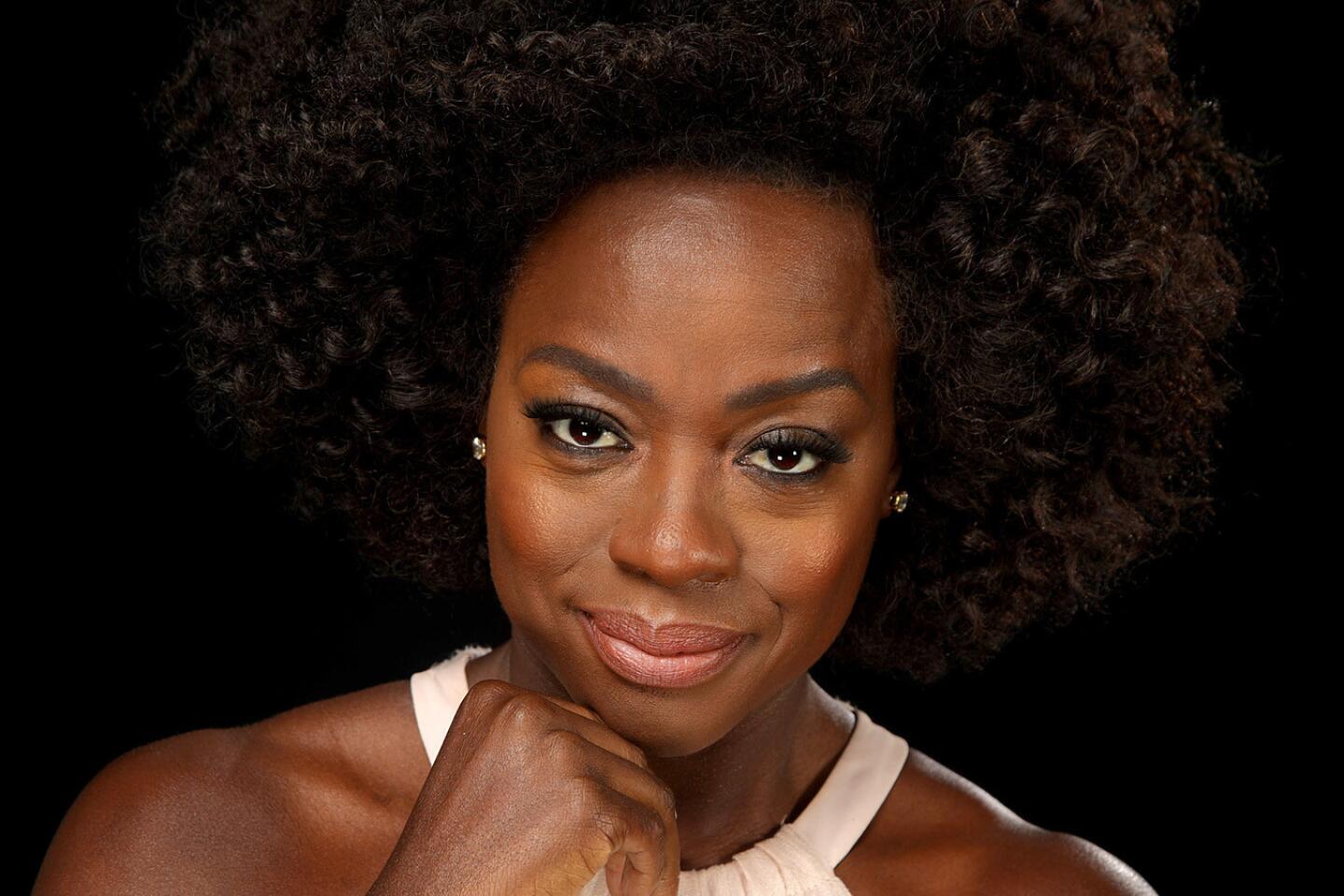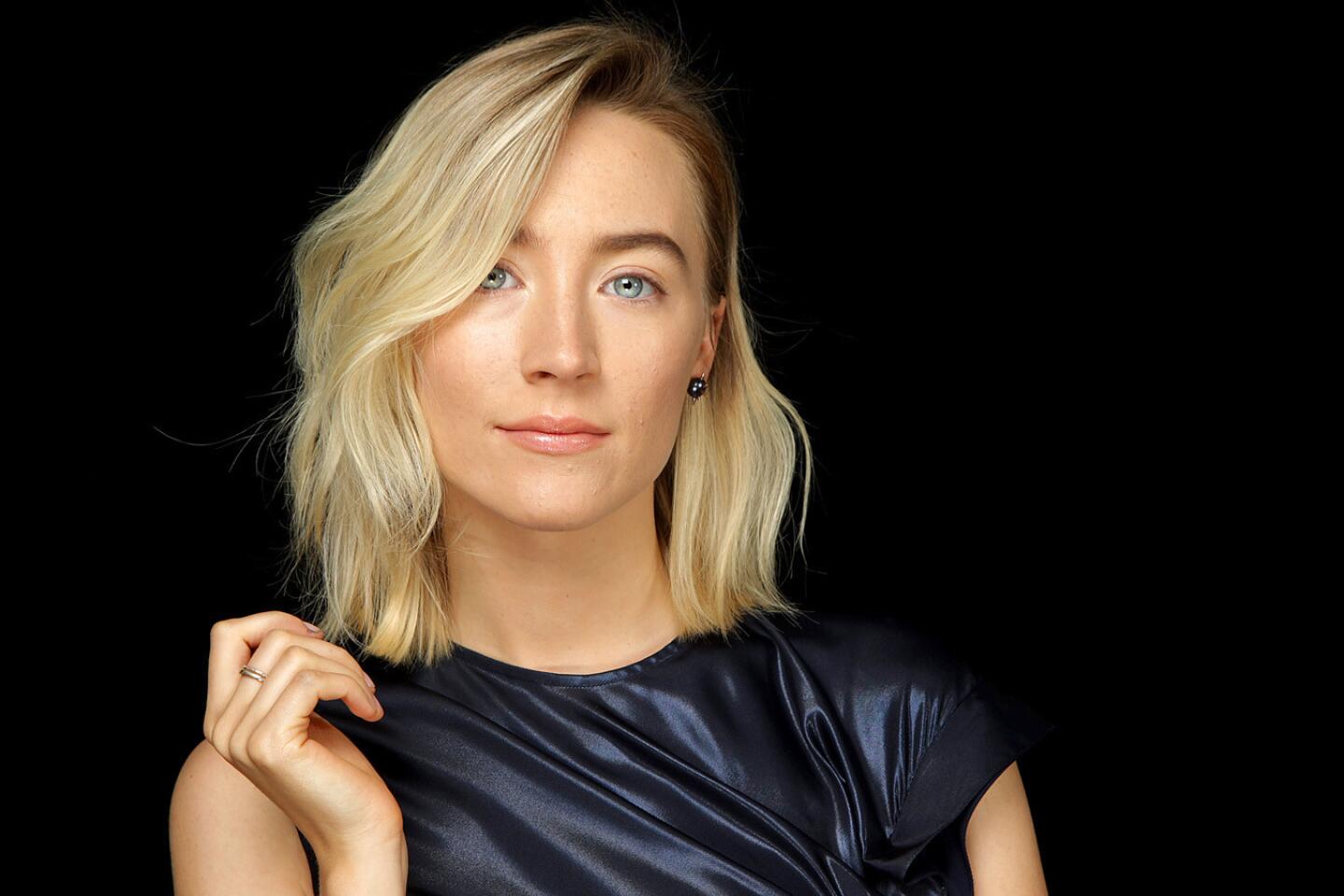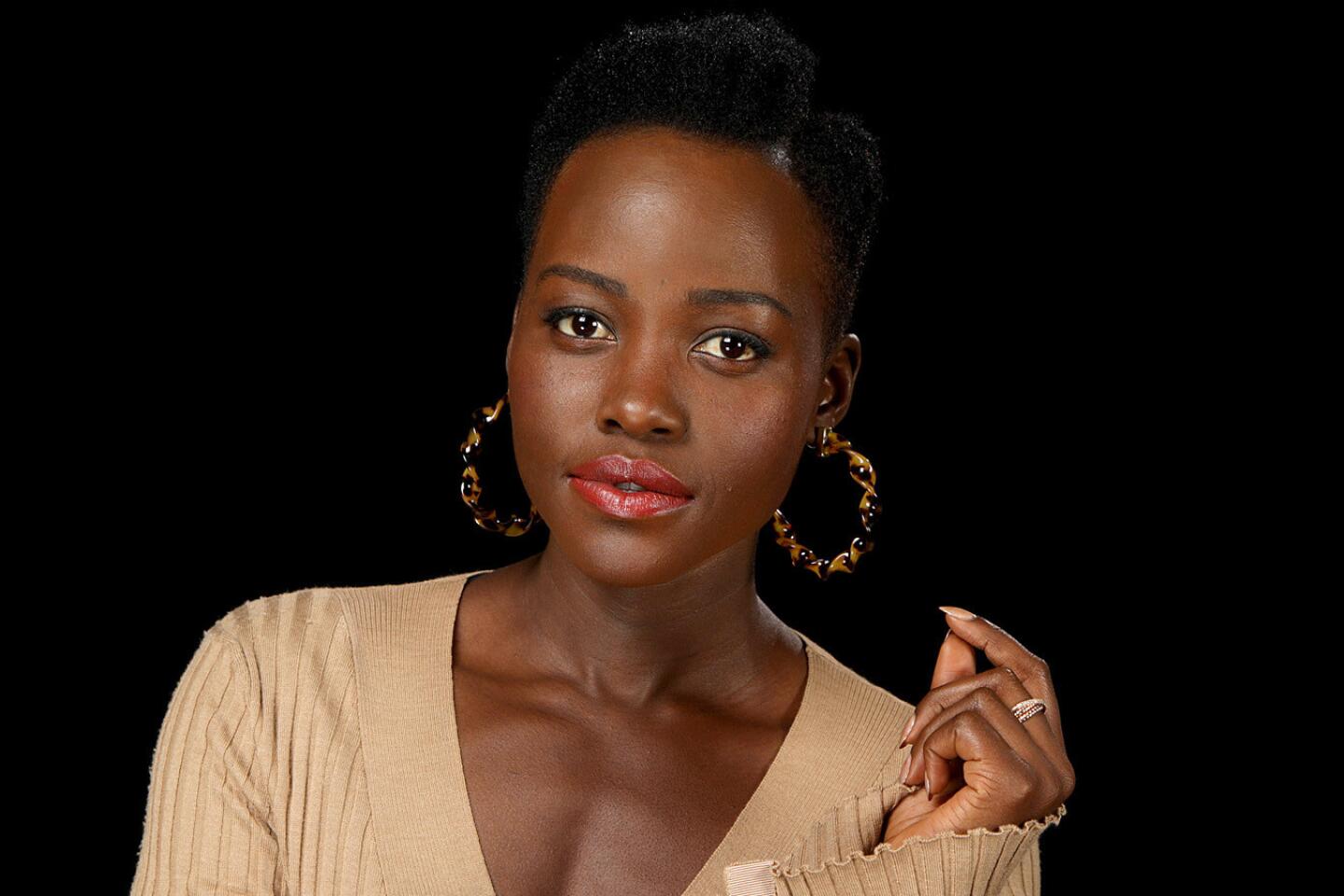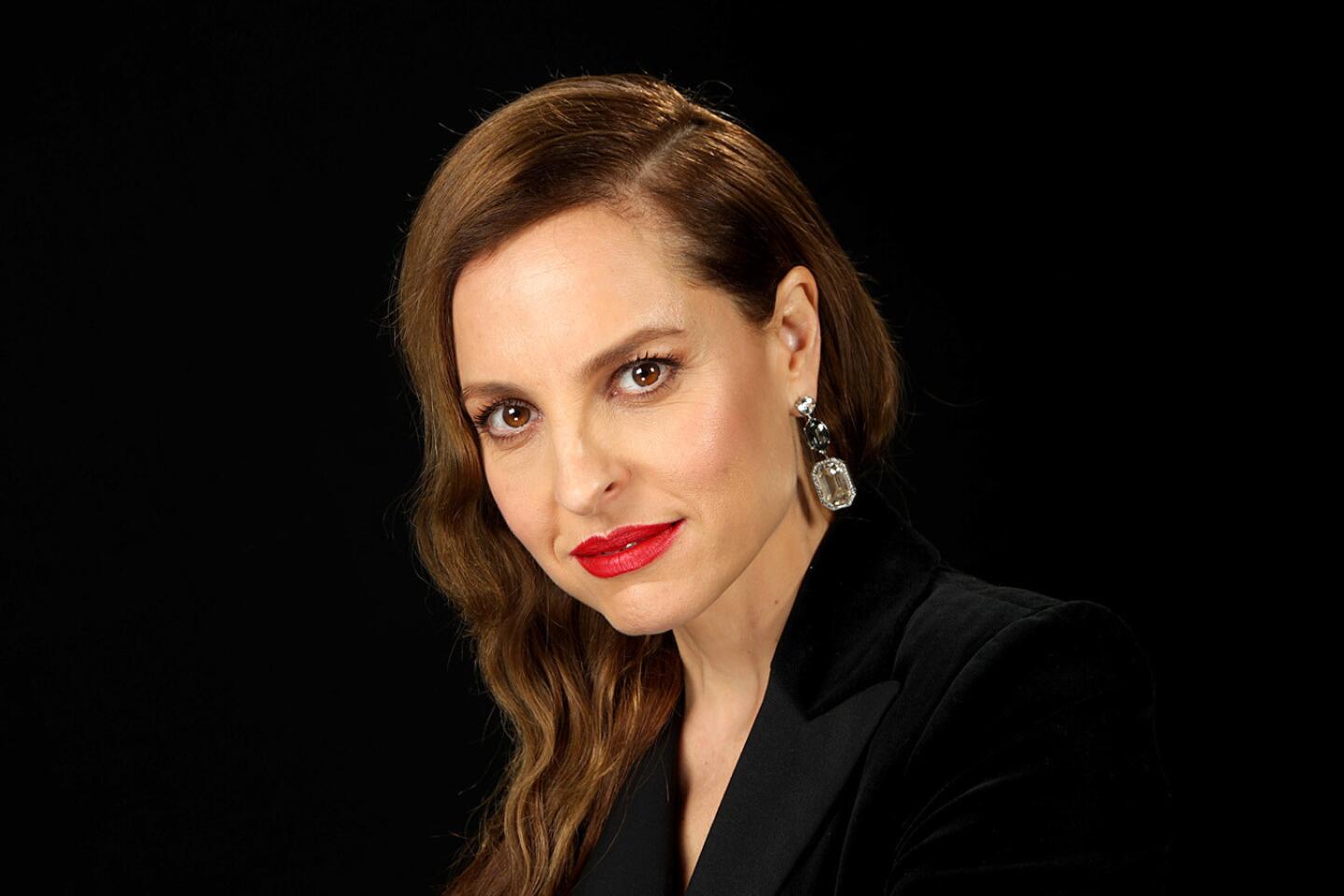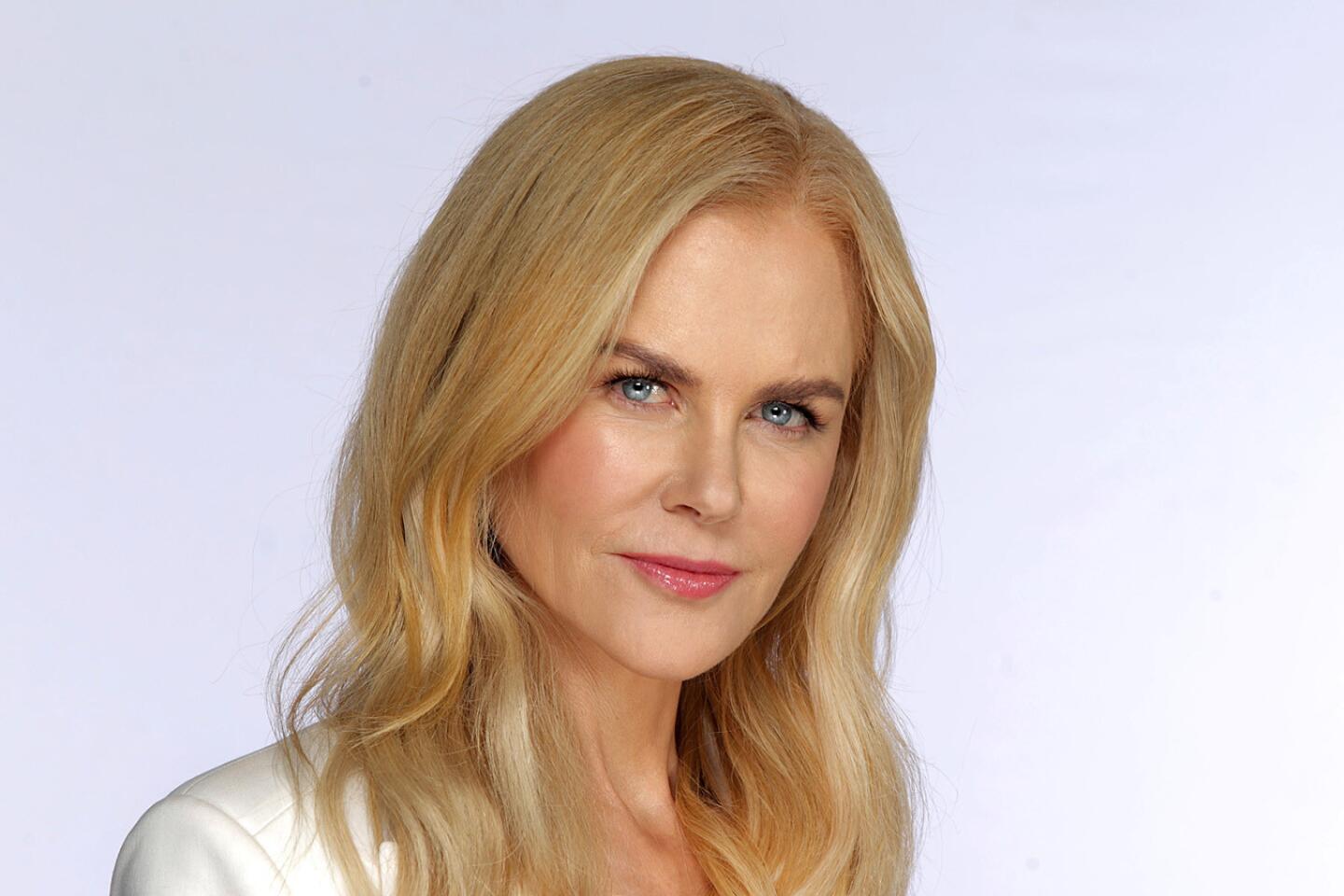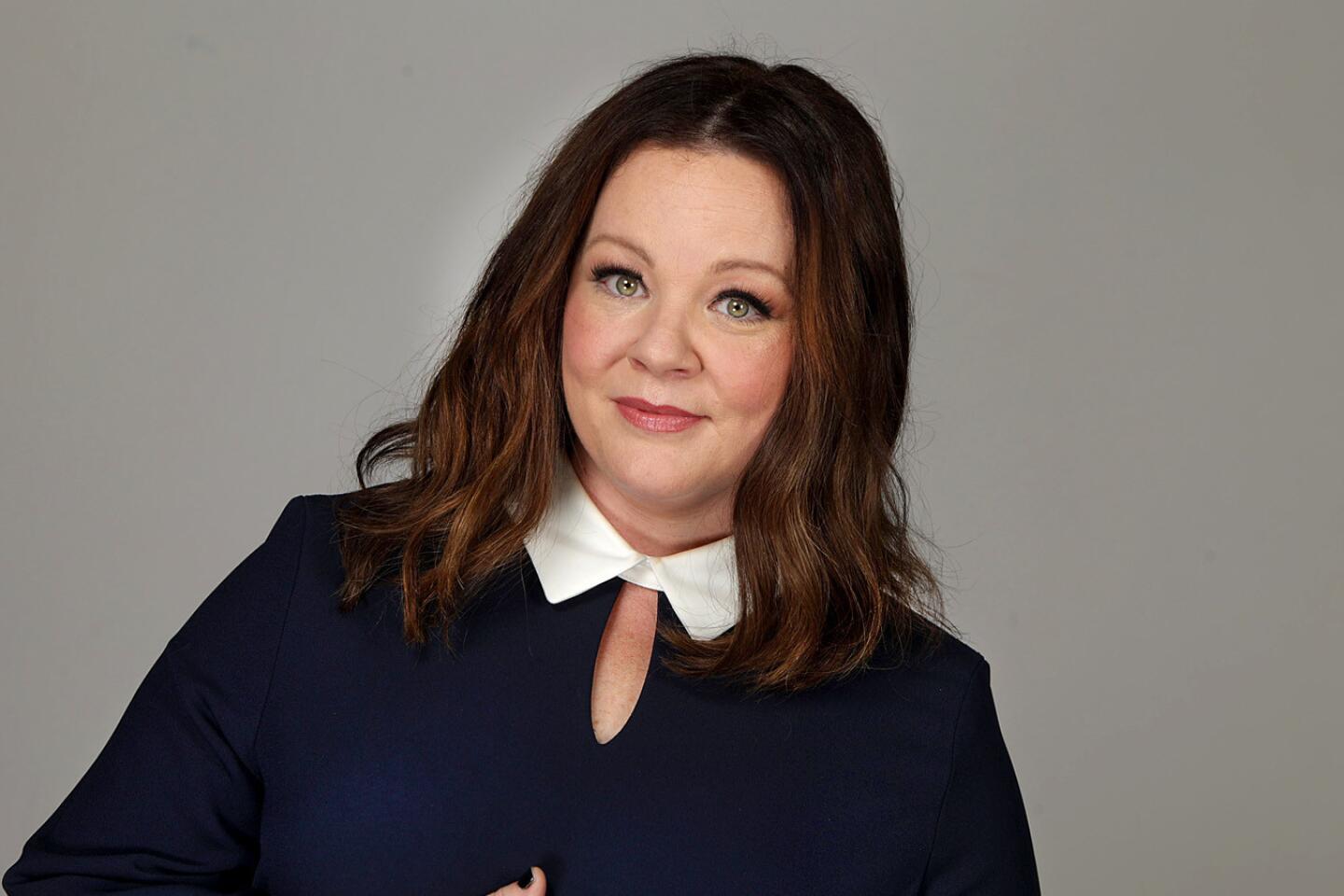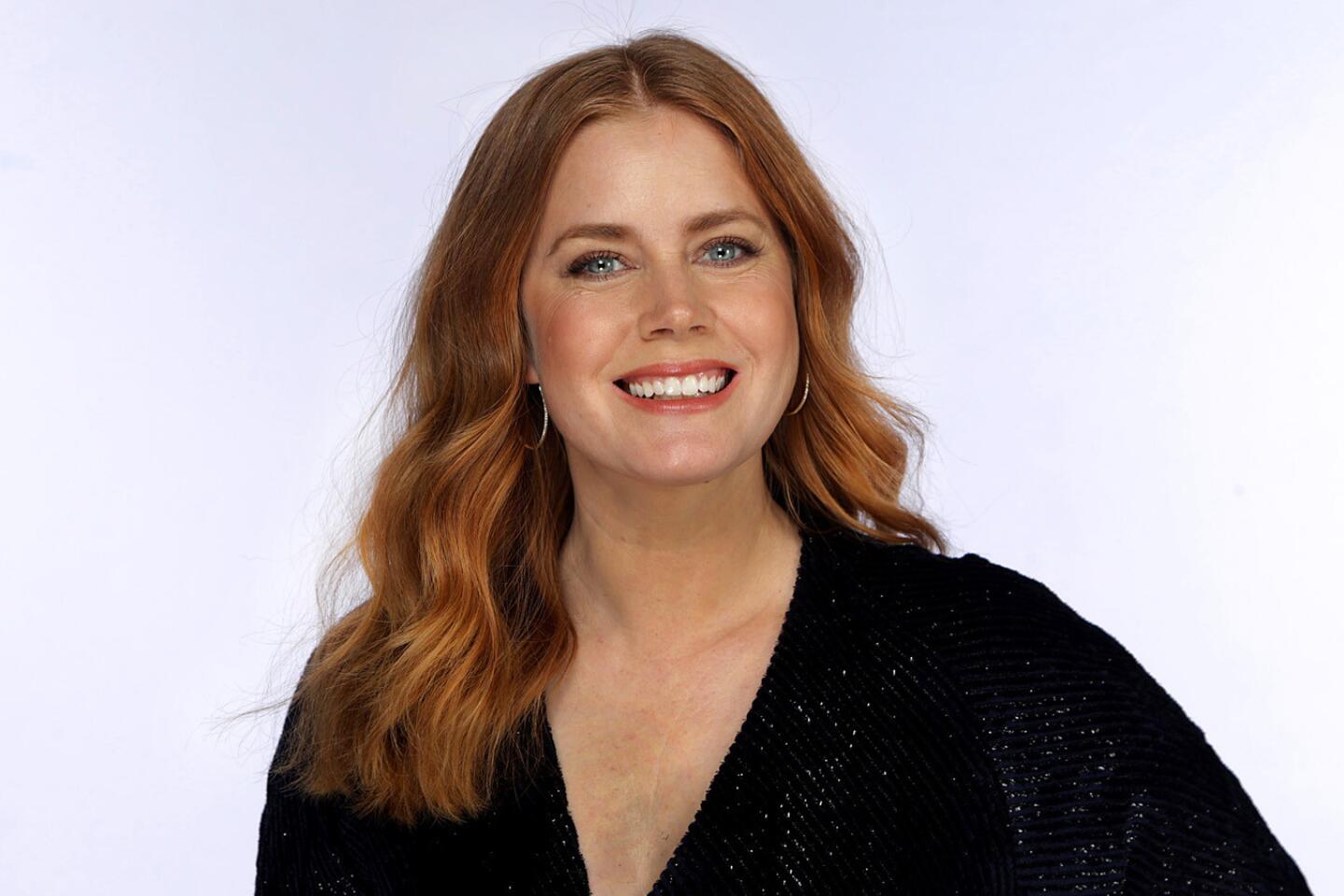Seven women, seven juicy roles: The Actress Roundtable

Amy Kaufman and Mark Olsen chat with Amy Adams (“Vice”), Nicole Kidman (“Destroyer”), Marina de Tavira (“Roma”), Lupita Nyong’o (“Black Panther”), Melissa McCarthy (“Can You Ever Forgive Me?”), Viola Davis (“Widows”) and Saoirse Ronan (“Mary Queen o
- Share via
They may be internationally recognized as Hollywood’s most glamorous movie stars, but the women on this year’s Envelope’s Actress Roundtable all insisted they’re most passionate about representing flawed, bare-faced, complex female characters on the big screen.
The Envelope recently sat down with Nicole Kidman, who played an undercover cop with addiction struggles in “Destroyer,” as well as the mother of a teen sent to a gay conversion program in “Boy Erased”; Viola Davis, who starred as a woman who must pull off a heist to settle her late husband’s debts in “Widows”; Saoirse Ronan, who took on an iconic Scottish monarch in “Mary Queen of Scots”; Lupita Nyong’o, who appeared as a spy tasked with keeping Wakanda safe in “Black Panther”; Amy Adams, who tackles real-life political figure Lynne Cheney in “Vice”; Marina de Tavira, who played a mother who relies heavily on her nanny to help with her children during a divorce in “Roma” and Melissa McCarthy, who brought to life a writer who finds she can make money forging literary memorabilia in “Can You Ever Forgive Me?”
The far-ranging discussion touched on how becoming producers has changed their approach to acting (unleashing the Kraken!), what an Oscar nomination does to your career and the joy of playing flawed, imperfect women. Here is an excerpt of that conversation, edited for length and clarity.
FULL COVERAGE: Get the latest on awards season from The Envelope »
Viola, in talking about your movie “Widows,” you’ve been doing it with such confidence and joy. Do you feel like there was a moment where you sort of turned a corner and came into yourself?
Davis: You don’t come into yourself just overnight. It’s gradual. You sort of fail, you get back up, you hit another wall, you fail again, you have a moment of success. I would say that I really came into myself with “How to Get Away With Murder.” Only because it was a character that had all of the adjectives that were never associated with me as an actress. And not just because I was African American and dark skinned -- because it just wasn’t my type. Any time someone said “attractive,” if it was in the breakdown, I didn’t get that role. So when the character was described as sexual and possibly sociopathic, I was like, “not me.” … I really had to come into myself. I really had to take chances. But I still feel like I’m coming into myself, because now I’m at a point where I sort of am losing some passion, because this [promotion] can kind of do it to you. You’re feeding two monsters — the actor and this [gestures to the group]. And feeding this can take away from the actor, it really can.
What is that process like, when you say finding your passion?
Davis: I think you need a challenge. I created a production company out of necessity, because if I literally waited for Hollywood, I would still be mama. But because of the production company and because of my imagination, I can find those emerging artists out there somewhere floating around writing for someone like me. I always say I want my “Klute.” I want my “Alice Doesn’t Live Here.” I want my “Kramer vs. Kramer.” I want to be that black girl in a movie that is just a paradox, a whirling dervish. So, that’s how I hope to find my passion again.

Viola Davis (“Widows”) explains how working in below-par projects can chip away at your creativity and how to find roles you can be proud of.
Nicole, you’ve also become more involved in producing projects. What’s the inspiration for that?
Kidman: Initially, it was born out of frustration because I just wasn’t getting offered anything that was of any substance. It feels very good, you feel, “Ah, I can actually do something that puts me in a little bit of control of my destiny.” And I think a lot of us as actors, we don’t have control of our destiny so much. Because as much as we’re wanting to have roles and opportunities, a lot of times you only get what you audition for. Most people don’t get the choice of how to construct a career.
Amy Adams: I think I prefer producing.
McCarthy: Really?
Adams: The day-to-day. I love being on set and being a part of the solution and having people hear me. That was a new thing for me. … As an actress, I found that whether or not people would hear me, I didn’t trust my own voice. I felt like that wasn’t my place to make a suggestion that would improve the day, whereas, as a producer, I had no trouble, and I really loved it. And now I’m sure going back to just being a — what they call, which I hate — an actor for hire, I’m going to feel like, “Nobody puts baby in the corner.” A beast has been unleashed.
McCarthy: You can’t go back. That’s a good thing though, I think.
Adams: No, you can’t go back. I’ve definitely unleashed the Kraken. I really love it, whereas with acting, I feel so vulnerable as an actress that I don’t know that I love it. I love it when I’m doing it, and then even after the scene’s done, I feel like I’ve lost something. And it’s hard to get it back.

Nicole Kidman (“Boy Erased” and “Destroyer”) and Amy Adams (“Vice”) compare notes about producing and acting and how producing allows them to find better roles and control their destinies as actors.
The Actors Roundtable: With these 6 characters, the stories never get old »
Nicole, you’ve made a specific commitment to working with female filmmakers. What was it that sort of drove you to make that decision and to make it as a public statement?
Kidman: There’s not enough women. I mean, statistically, we don’t have enough female directors. Actually, it was a conversation with Meryl [Streep], where we were sitting around a table a while back. And we went, “The only way to actually change it is to go, ‘I’m in the position to choose the director and I’m actually choosing a female here.’” And then it will start to shift, statistically. It’s nowhere near even, but it could become maybe 20% women. ...I’ve done some of my best work with men, so it’s not like I’m going to never work with them again, but I’m just trying to shift the statistics when I can.
Lupita, watching “Black Panther,” you can tell the project was something special and that it meant something to all of you who were making it. Did that seem unusual?
Nyong’o: Well, I don’t know how to work from a place other than for it to feel vital. And I personally choose stories that I feel have to exist. … And then for it to be shared, that was definitely very moving. It was a vibration. We haven’t seen this kind of story before. This kind of opportunity on this scale had not been granted to any of us before. … And yeah, you could feel it on set. Even with the extras. I remember when we were shooting the big coronation of the king and we were on these very precarious cliffs and we had to be like, tethered to them in order for us not to fall. The conditions were harsh: The sun was really strong and we couldn’t leave at our will and so it meant long hours of just standing there. For those of us who were main cast, we had to be there. But extras have the opportunity of not coming back, but they came back every single day. They were so committed to that experience, because they just never had that opportunity before.

Lupita Nyong’o talks about the magical on-set experience of “Black Panther” and how the entire cast and crew understood how impactful the film would be.
Davis: You know, an actor has a hell of a responsibility. I always think what does it mean to create a character or a narrative that people can be proud of? Other women can be proud of. The person can be proud of. I’m always confused by that. Only because there are parts of ourselves that are so freaking putrid. … Those moments when you can be raw, just take the veil off what makes you so human, it’s why we do what we do. It’s not about image and message and being pretty. I don’t always wanna please my race. And I hope you understand what I mean by that. I don’t always wanna please them. I wanna please them by showing them being honest about who I am. Truth.
McCarthy: In so many films, you start to see these perfect women that I don’t know. I don’t know the pleasant, perfect, always coiffed, perfect job, never says the wrong thing. I don’t know her. I don’t wanna know her. I don’t think she exists. But I think you have so many of those, and it’s a bit of a disease. You have all these people out there watching, saying, “Is that what my life should be? Should I be perfect? Do I have to loom my own clothes and make organic baby food?” And then you play somebody who’s aggressive and not great with their kids and someone’s like, “Oh, she’s unlikable. That’s why you fall in love with people. You fall in love with their weirdness.”
Ronan: Isn’t it because it reminds them of what they’re ashamed about?
McCarthy: It hits something uncomfortable in people. They do the surveys when you screen a movie, and [the audience says], “I don’t like that part when she did that because it wasn’t nice.” I’m like, “It wasn’t supposed to be nice. It wasn’t given to you to make you feel good. It’s holding up a mirror to yourself and the audience.”
Saoirse, you’ve always seemed to portray yourself that way. When you were in “Lady Bird,” you said you didn’t want to cover up your acne because teenagers have bad skin.
Ronan: I’d grown up playing characters that just didn’t wear makeup and were usually tomboys, and there was never a role I played that was described as “pretty,” because I wouldn’t have been seen in that way. And in hindsight now, I’m glad that that’s the way it ended up going.
Adams: It’s so funny, because out in the world, I don’t ever wear makeup and I always look a mess. People are like, “You’re so brave to look like that.” I’m like, “I always look like I just wiped food off my jeans in real life.”
Ronan: But do you find as well that people don’t recognize you as much when you don’t put makeup on? Because they see us so much when we’re like this, and I guarantee you none of us dress like this on our own.
Davis: No, they recognize me all the time, especially when I just put the rag on my head. Because I’m that actress, you know. I’m that actress.
De Tavira: When they called me to audition for “Roma,” it said no makeup and I was so relaxed. I said, “Oh, I’m not going to have to look good,” or they’re not looking for that, you know? They just want to see who I am, and there was no makeup at all in the film. I could just forget about the way I looked. It helped a lot.
Marina, you’re a well-established theater actress in Mexico, but “Roma” has introduced you to a whole new audience. Would you like to have an international film career now?
De Tavira: Right now, I’m just really overwhelmed to be here and talking to all these amazing actresses. It’s been incredible. I knew [“Roma”] was going to be something beautiful, but I never thought that it would be like the way they’ve been receiving the film. I mean it’s in Spanish, it’s in black and white, it’s really local, it’s really about Mexico. And suddenly I feel like everybody is talking about the way they can relate to it. So I’m just enjoying it day by day, I don’t know what’s going to come next.

Amy Adams talks about the “eye-opening” experience of playing Lynne Cheney in “Vice” and why she never met Cheney before filming.
Lupita, after you won an Oscar for “12 Years a Slave” in 2014, you didn’t appear on screen again for a little while. Was that because you weren’t getting the kind of roles that you wanted to get?
Nyong’o: For me to have gotten such a ground-breaking role in “12 Years a Slave” and that it led to an Academy Award was extremely dizzying. And it was something that I had to grow into. Because there was a lot that came my way really quickly, and I had to make sense of it. What I got told a lot after I won was, “This is your moment, seize the day, get in there, the time is now or never.” And that sent me into a little bit of a panic, because I hadn’t expected it. I had to ask myself: What am I in this for? Did I do this for the accolades, or did I do this for the love of the work? And what exactly is my love? … And I came to the realization that I did it because I love acting, it’s the one thing that I have an insatiable appetite for. And I had to give myself permission to fail. It had to be OK for me to go forward and not break barriers, to be unremarkable.
Melissa, you had a similar experience with being sort of shot out of a cannon after being nominated for “Bridesmaids” seven years ago. How did that change your career?
Ronan: To get nominated for comedy, that was a big thing.
McCarthy: That was, yeah. I felt like, was this an accident? I didn’t win, but it’s as if you’re going to burn up into an ember and be gone in a year. It’s like, “Take everything now!” I was like, “Well, I’m not good enough to take stuff.” I have to like it in some way. I have to love the characters. … I love the strange women I get to play. I’m much more fascinated with them than myself. I get to walk around in their shoes and be ruder or smarter or more aggressive or more likable than I am as an actual person. I think that’s all you can concentrate on -- what it is that drives you.
Follow me on Twitter @AmyKinLA
More to Read
Only good movies
Get the Indie Focus newsletter, Mark Olsen's weekly guide to the world of cinema.
You may occasionally receive promotional content from the Los Angeles Times.
